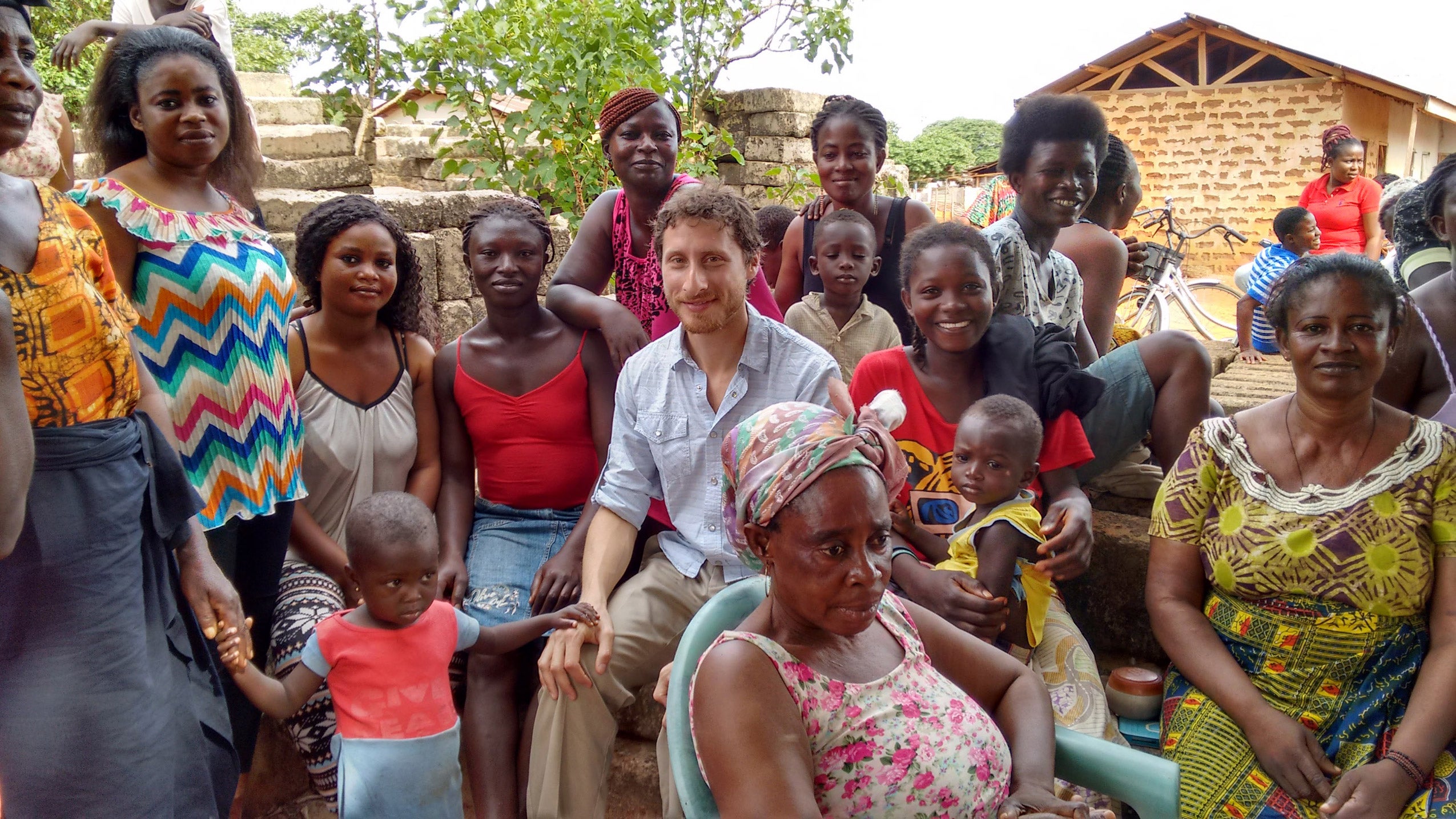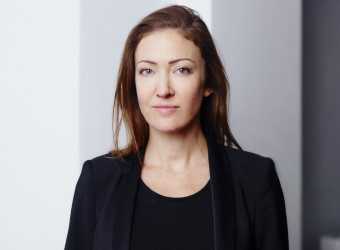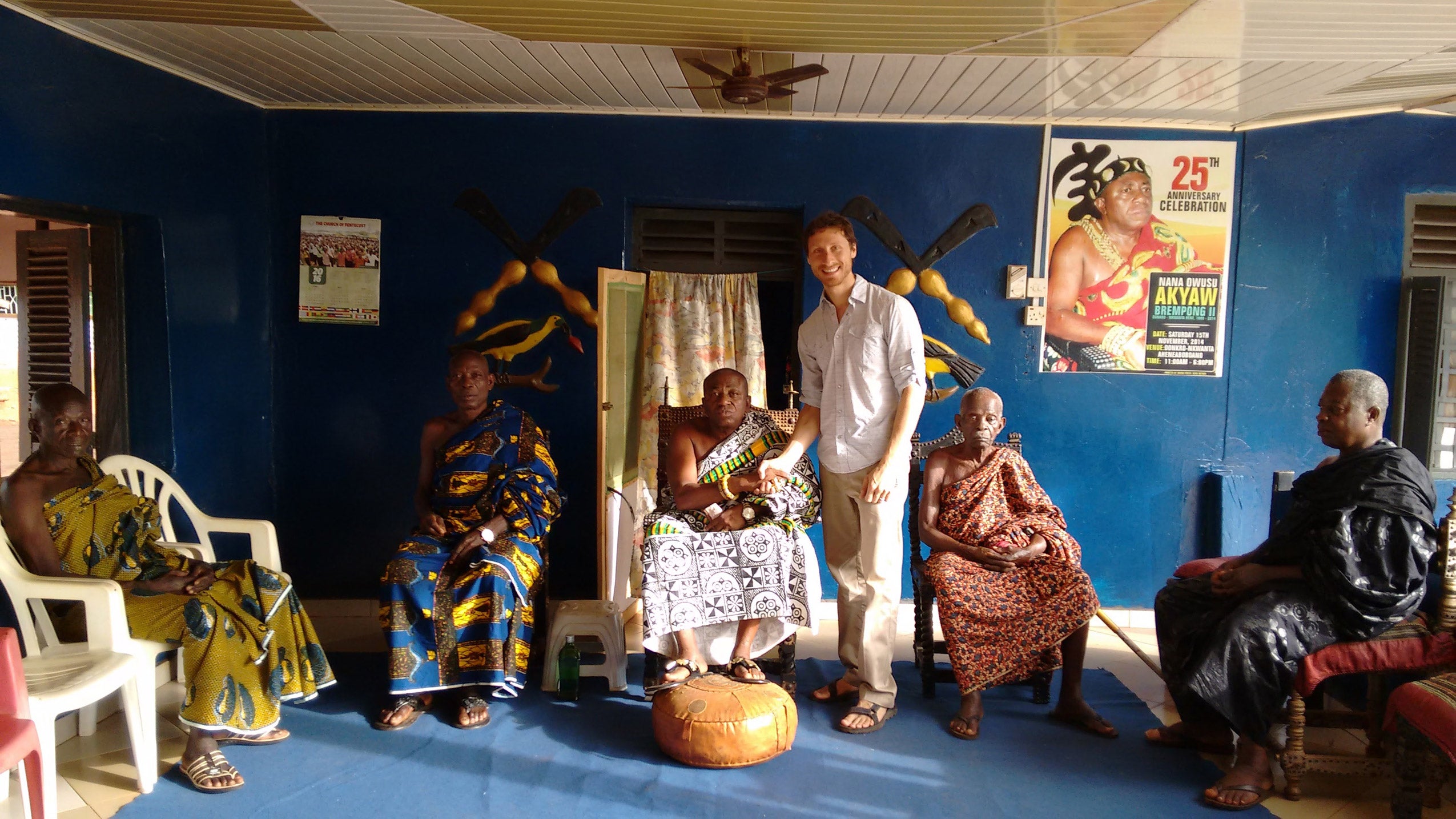Today, Jonathan Kaufman ’06 and Lillian Langford J.D./M.P.P. ’13 work on different continents and on very different stages. While at Harvard Law School they had many experiences in common: both were Chayes International Public Service Fellows, both were active in the International Human Rights Clinic, and both received Public Service Venture Fund grants to launch or redirect their careers. And as dozens of HLS students plan to pursue public service work abroad this summer, both Kaufman and Langford recall that seeds planted during their own 1L summers grew, strongly and directly, into the work they are doing today.
Jonathan Kaufman ’06
Advocates for Community Alternatives, Ghana

After graduating from HLS, Kaufman spent seven-and-a-half years as a litigator with EarthRights International, the NGO co-founded by Clinical Professor Tyler Giannini, suing international corporations charged with committing human rights abuses and causing environmental damage. His first cases were in Nigeria. “I loved the people I was working with: courageous activists working under difficult conditions, people who had an amazing sense of humor and sense of life despite pretty appalling situations. So West Africa just got under my skin,” he recalls.
As he got to know lawyers from Ghana, Liberia and Sierra Leone, and shared ideas about public service and advocacy with them, he began to develop a new approach. In 2017, Kaufman received a Public Service Venture Fund “seed grant” to launch Advocates for Community Alternatives, an NGO based in Ghana that helps West African communities develop and achieve their own sustainable development plans and builds legal networks to support them.
“I started this organization because I felt that as lawyers we weren’t offering our clients enough. We were helping people fight but we weren’t helping them figure out what to say yes to,” he explains. “We work with lawyers all across the region, helping them in the traditional human rights battlefield, but we are also mixing into that set of services the idea that you don’t just have to be on the defensive. Communities are best able to resist negative influences when they also have a vision of the future that they’re moving towards.”
For example, in Aggah in southern Nigeria, an Italian energy company drilling for oil in and around the community has built elevated roadways and embankments that block natural streams, causing devastating floods for several months each year. Kaufman and his colleagues helped residents form a community association and register a formal complaint with the Italian government, alleging that the company has violated international human rights guidelines for multinational corporations. But first, the NGO and its partners conducted a survey that assessed the social and environmental effects of the flooding, focusing on the impacts on women. “Because most of the traditional leaders of these communities are men, women were not being involved in the decision-making,” Kaufman explains. “It turned out that everyone wanted to talk. The results were basically incontrovertible, and a divided community, dominated by male voices, suddenly experienced this very inclusive process.” When the energy company argued that the community association did not have the authority to represent the residents, and would only deal with village officials, there was “a spasm of outrage”: some 2,000 residents signed a letter insisting that they had the right to speak for themselves and to choose how they would seek redress. “To me, this is an example of how legal action, when done well, unites people, and gives them voice, and something to fight for,” he adds.
As a Chayes Fellow, Kaufman spent his 1L summer in Tanzania, working with the Sand County Foundation’s Community-Based Conservation Network, a small, U.S.-based NGO operating on the principle that natural resources are most likely to be guarded and preserved effectively by the people who live among them. “This was my first real experience in Africa — I’d been there in college as part of a singing group, which is very different,” he recalls with a laugh. Kaufman worked on a project designed to take advantage of a new law stipulating that if local communities developed acceptable management plans, the government would relinquish control over the natural resources in their territory. His placement organization helped community leaders draft by-laws and took them, step by step, through formulating the mandated plans. “This was a bit of a revelation to me, because it was a different way of using law — holding the hand of a community and making a link between official processes and traditional knowledge and practices.”
During that summer, Kaufman spent almost three weeks in the field, traveling to small Maasai villages. “It was important for me to understand what it meant to do fieldwork; you have to go out there with a sense of humility and flexibility,” he observes. “But I would say that when I started at EarthRights, traveling to indigenous villages in the Amazon or the highlands of Papua New Guinea, what I had learned about talking to people, listening to people, and finding ways to communicate definitely started that summer.”
For students working abroad for the first time, “it can be a little scary, or you may find yourself wondering ‘Why did I come out here?’ — but you have to take that plunge,” Kaufman advises. “I feel incredibly lucky. Having absolutely the right kind of training and mentoring at Harvard, and the right opportunities, has made all this possible.”
Lillian Langford J.D./M.P.P. ’13
Organization for Security and Cooperation in Europe, Bosnia and Herzegovina

Since graduating from Harvard, Langford has also worked abroad. She now lives in Sarajevo, where she works with the Organization for Security and Cooperation in Europe (OSCE), in its Mission to Bosnia and Herzegovina. The OSCE has 57 member states and several missions, often in places that are transitioning from a period of conflict. The Mission’s mandate to monitor human rights in Bosnia and Herzegovina was established under the Dayton Accords, the framework designed to end three-and-a-half years of armed conflict there.
Today, Langford leads the Mission’s Rule of Law initiative. “Our work focuses on war crimes, trafficking in human beings, hate crimes, corruption, and other serious crimes, such as terrorism,” she explains. “The most important foundational work that we do is monitor domestic criminal trials. We have 22 trial monitors on staff who observe whether the proceedings are conducted in accordance with applicable laws, with respect for the rights of victims and witnesses, and in an efficient way.” The OSCE provides significant support as Bosnia and Herzegovina continues to process the remaining war crimes cases arising from the conflict. The Rule of Law section also recently published a report on corruption-related criminal proceedings, analyzing 67 cases and making recommendations to the judiciary. “I think this is important because it shows that the OSCE is not just backward-looking; it’s also very much looking at the most current, pressing problems in the country. We’re trying to help the justice sector identify its challenges in addressing these cases and move forward,” Langford explains.
On a substantive level, “the work is really fascinating. The Mission has such a unique role here, in that we have a mandate to monitor, report and provide assistance, so we’re able to work on very complex and interesting issues hand in hand with the judiciary,” she adds. “One of the really important factors is that Bosnia and Herzegovina is a member state of the OSCE. So instead of looking in from the outside, the OSCE is both assisting and representing the country.”
At HLS, Langford spent two summers abroad as a Chayes International Public Service Fellow. During her 1L summer, she traveled to Cambodia to work with the United Nations Assistance to the Khmer Rouge Tribunal. She worked directly with prosecutors, conducting research and learning in detail what it was like to investigate and build a case involving war crimes and crimes against humanity. “It would be difficult for me to understand the nature of these cases, and why there are so many challenges, if I hadn’t had that opportunity. That hands-on experience was critical,” she emphasizes.
In her 3L summer, as she pursued her dual degree, Langford was a Chayes Fellow again, working with the Eurasia Foundation of Central Asia in Kyrgyzstan. “There, I was working on issues of a domestic legal system’s compliance with international treaty law, which is very relevant to the work I do now,” she observes. “After the dissolution of the Soviet Union, Kyrgyzstan had to develop its legal system as an independent country, and it experienced challenges along the way. Although the contexts are very different, Bosnia and Herzegovina undertook major reforms to its legal system following the dissolution of Yugoslavia.” Langford “fell in love” with Kyrgyzstan during that summer, so much so that she returned there after graduation, using her organization-based Public Service Venture Fund grant to launch her career with the Law Program of the Soros Foundation-Kyrgyzstan, an international NGO that seeks to create conditions for building an open society.
The work she had done at the Khmer Rouge Tribunal and with Professor Alex Whiting at HLS encouraged her to focus more on war crimes. The opportunity to join the OSCE, when she found it, offered a perfect fit. “I knew about the OSCE from cooperating with them in Kyrgyzstan and from teaching a course, based on international humanitarian law, at the American University of Central Asia, and I was very interested in the work they were doing in their field missions,” she notes. “I can’t imagine doing anything that I would enjoy more right now.”
Langford often advises HLS students to take advantage of the opportunity to study languages while they’re at Harvard. Knowing some Russian was critical for her Chayes summer in Kyrgyzstan. “Not that I was fluent — nor am I now — but I had enough skill to be able to communicate, to fit in in an office setting, and to read documents,” she recalls. On the other hand, for their first summer abroad, she urges students to do “everything that interests them. That is the time to explore, and just try something totally different.”
